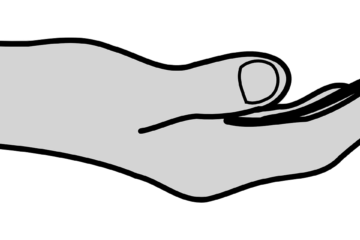How vision insurance works is one of those odd corners of personal finance. However, when you start a new job and are going through all of your insurance options, knowing how vision insurance works can be valuable knowledge. So let me explain this to you and how you can decide if vision insurance is right for you and/or your family.
Vision Insurance is a Basically a Discount Program
Although everyone needs to carry some type of health insurance, vision insurance is not as cut and dry. Not everyone needs vision insurance.
This is mainly because vision insurance doesn’t work exactly like regular health insurance. Vision insurance is more of a discount program instead of a regular insurance plan.
What I mean by this is that you will pay your premiums on your vision insurance in order to get some free or price-reduced services.
So with that, let’s get started.
(1) In/Out of Network
The first main concept with how vision insurance works is that you need to understand is the difference between “in network” and “out of network”.
Nearly all health insurance plans have hospitals, doctors, optometrists, etc. that they have “partnered” with to offer vision care. These are called in network providers.
Any hospital, doctor, optometrist, clinic, etc. that is not in-network, is therefore out of network.
Whenever you need to go see an eye doctor do your best to go to an in network provider.
In network providers will have pre-negotiated rates with the insurance company. They will nearly always be cheaper than the out of network counterpart and the billing process will be smoother.
If you don’t know if a service is in network or out of network, just give them a call and tell them who your insurance is. (You’ll probably have to have your insurance card to verify the plan number, group number, etc.)
(2) What is Usually Covered for Free
All vision insurance plans are a little different. But for the most part, vision insurance coverage will give you
- One free exam per year
- A certain dollar amount toward glasses OR contacts every year
(3) Premiums
Premiums are usually pretty easy to understand. Premiums are simply the payment that you make toward your vision insurance every month, every paycheck, etc.
If you see that $5 was taken out of your paycheck for health insurance, that was your premium.
(4) Copayment/Coinsurance
The next part of how health insurance works are copayments (sometimes called coinsurance).
Focus on the first part of the word “copayments”. Co means together. So a copayment means that you and the insurance company will pay for the service together.
Some vision insurance companies have some sort of copayment structure. And the copayments are usually a flat dollar amount. They are usually $10-20.
You might have to pay a copayment when you see a specialist or have a minor surgery or something to that effect.
Not all services require copayments. Usually any preventative care will not require a copay.
Make sure to check your insurance plan to know what yours is.
(5) Maximum Payout of Vision Insurance
In this way, vision insurance is quite different from regular health insurance.
While regular health insurance will pay 100% of healthcare bills AFTER you meet your maximum out of pocket expenses, vision insurance does not do that.
Remember, vision insurance is basically a discount program. They will only pay UP TO a certain amount of money. After they hit that limit, they will pay no more and you are responsible for all your own vision healthcare expenses.
Final Thoughts
Vision insurance is really inexpensive. If you wear glasses and/or contacts, it is most likely beneficial for you to get vision insurance.
If you don’t wear glasses or contacts, you may not need to purchase it. A regular eye exam is not that expensive and if you think that your vision might not be as good as it used to be then just go have an eye exam and pay for it out of pocket.
If, after that, you need to have glasses, then look more seriously into getting vision insurance.
If you go to the eye doctor every year and get new glasses and/or contacts each year, vision insurance will usually pay for itself.
I hope this helps with you making your benefit choices when you start a new job!
I am her to help you!
You can do this!
Until next time!



0 Comments